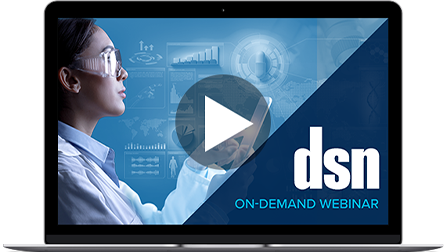
Pharmacy Transformation: Examining Medical Billing in Pharmacies
May 22, 2025The pharmacy industry is transforming as pharmacies expand from traditional dispensing roles into providers of essential clinical care. Pharmacy teams embracing an expanded role now face an alternative billing pathway that offers more revenue opportunities while also requiring new billing capabilities, strategic payor negotiations, and innovative approaches.
The 2025 Pharmacy Transformation Outlook survey gathered insights from over 350 pharmacy professionals. Chief Pharmacy Officer David Pope and Vice President of Product & Partner Marketing Sandra Greefkes discussed the survey results at our Drug Store News-hosted webinar, 2025 Pharmacy Transformation Outlook: Unlocking Insights to Drive Innovation & Revenue.
The data shows that research participants ranked expanding the pharmacists’ role to fill primary care gaps as the biggest opportunity for pharmacies, and a greater focus on pharmacies as health and wellness destinations (e.g., screenings, education, and preventative care) as the second biggest opportunity.
When asked which clinical services survey participants planned to add to their service offerings over the next 1 to 3 years, 73% of respondents stated vaccinations and immunizations, followed by medication therapy management (70%), and chronic care management (63%).
When asked specifically about specialty pharmacy expansion plans over the next 1 to 3 years, 83% of respondents stated plans to introduce specialty pharmaceuticals to treat inflammatory diseases, followed by immunosuppressives (76%), and HIV (72%).
Pharmacies are no longer just dispensing medications; they’re delivering comprehensive clinical care that bridges critical care gaps. Medical billing for office visits is entirely different from traditional drug claims. Pharmacies are now navigating complex medical billing systems that require advanced solutions for accurate coding, claim submission, and reimbursement.
David Pope
Chief Clinical Officer XiFin, Inc.
Given the focus and enthusiasm surrounding clinical services expansion, survey participants were asked about their biggest barriers. Survey respondents identified reimbursement as the top barrier to clinical service expansion, followed by staff limitations/shortages, time constraints, and payor contracting. With pharmacies moving toward the community health hub model, optimizing medical billing practices is essential for expanding clinical services, maximizing revenue, and sustaining operational efficiency.
The Current Medical Billing Landscape
Medical billing practices in pharmacies are evolving rapidly as pharmacies expand their roles. These services range from test-and-treat visits and diabetes education to digital therapeutics and specialty pharmacy offerings. According to the 2025 Pharmacy Transformation Outlook survey, 32% of pharmacies are experiencing a shift toward medical benefit billing, reflecting a fundamental change in their approach to reimbursement.
This shift requires pharmacies to adopt advanced billing systems that can effectively manage complex coding, payor-specific requirements, and real-time eligibility checks.
The survey revealed that the top issues respondents face related to medical billing include:
- Challenges with providing patients with an up-front out-of-pocket expense estimation for clinical services
- Difficulties with getting real-time financial and clinical eligibility
- Challenges with getting prior authorization
- Lack of a comprehensive view into reimbursement status
Integrated billing systems designed to manage pharmacy and medical claims, provide accurate out-of-pocket cost estimates, and streamline reimbursement are essential for accurate coding and timely reimbursement. In addition, patients expect price transparency, and pharmacies must provide accurate cost estimates upfront to maintain trust and optimize revenue.
Pharmacies are moving into uncharted territory with clinical services, and this shift demands a more sophisticated approach to medical billing. This isn’t just about offering new services. It’s about transforming how we bill, negotiate with payors, and get paid. Pharmacies need systems that can seamlessly navigate pharmacy and medical benefit landscapes.
Sandra Greefkes
Vice President of Product & Partner Marketing XiFin, Inc.
Credentialing and contracting complexities present another significant challenge as pharmacies negotiate with payors for clinical services. In addition to getting on a payor’s network, pharmacies must negotiate contracts that ensure sustainable reimbursement rates. Check out the pharmacy edition of XiFin’s Payor Rate Transparency Monitor.
“Pharmacies need to become more strategic in their contracting and credentialing processes if they want to scale their clinical services effectively,” Pope said. He emphasized the importance of understanding payor policies and leveraging data to negotiate more favorable reimbursements. “The pharmacies that master payor contracting will be the ones that thrive in this new healthcare landscape,” he added.
Revolutionizing Medical Billing: How AI Can Pave the Way for a Simpler, More Efficient Future
Artificial Intelligence (AI) can help streamline medical billing practices for pharmacies and empower them to navigate complex reimbursement landscapes, optimize revenue cycles, and improve operational efficiency. Pharmacies can utilize AI to automate complex billing workflows, reduce administrative burdens, and enhance financial reporting.
Another significant benefit of AI in medical billing is its ability to automate claims processing and improve billing accuracy. “AI is a game-changer for pharmacy medical billing,” stated Greefkes. “It allows pharmacies to automate complex billing scenarios, translate unstructured payor responses, and reduce claim denials.”
Mastering medical billing is crucial for sustaining growth and maximizing revenue for today’s pharmacies. “Pharmacies are navigating a complex payor landscape that requires more than traditional billing practices,” explained Pope. “Success in this evolving landscape requires strategic partnerships, forward-thinking approaches, and a commitment to mastering complex billing practices.”
Next Steps for Pharmacies
- Seek Out Advanced Billing Solutions: a medical billing solution that manages pharmacy and medical claims is essential for accurate coding, real-time eligibility checks, and streamlined reimbursement.
- Leverage AI and Automation: Utilizing AI for claims automation, financial reporting, and price transparency can optimize billing efficiency and maximize reimbursement rates.
- Enhance Credentialing and Contracting Processes: Strategic payor negotiations and effective credentialing are crucial for scaling clinical services and ensuring consistent reimbursement.
- Expand Clinical Services Strategically: By aligning service offerings with patient needs and payor reimbursement policies, pharmacies can capture new revenue streams and drive growth.

